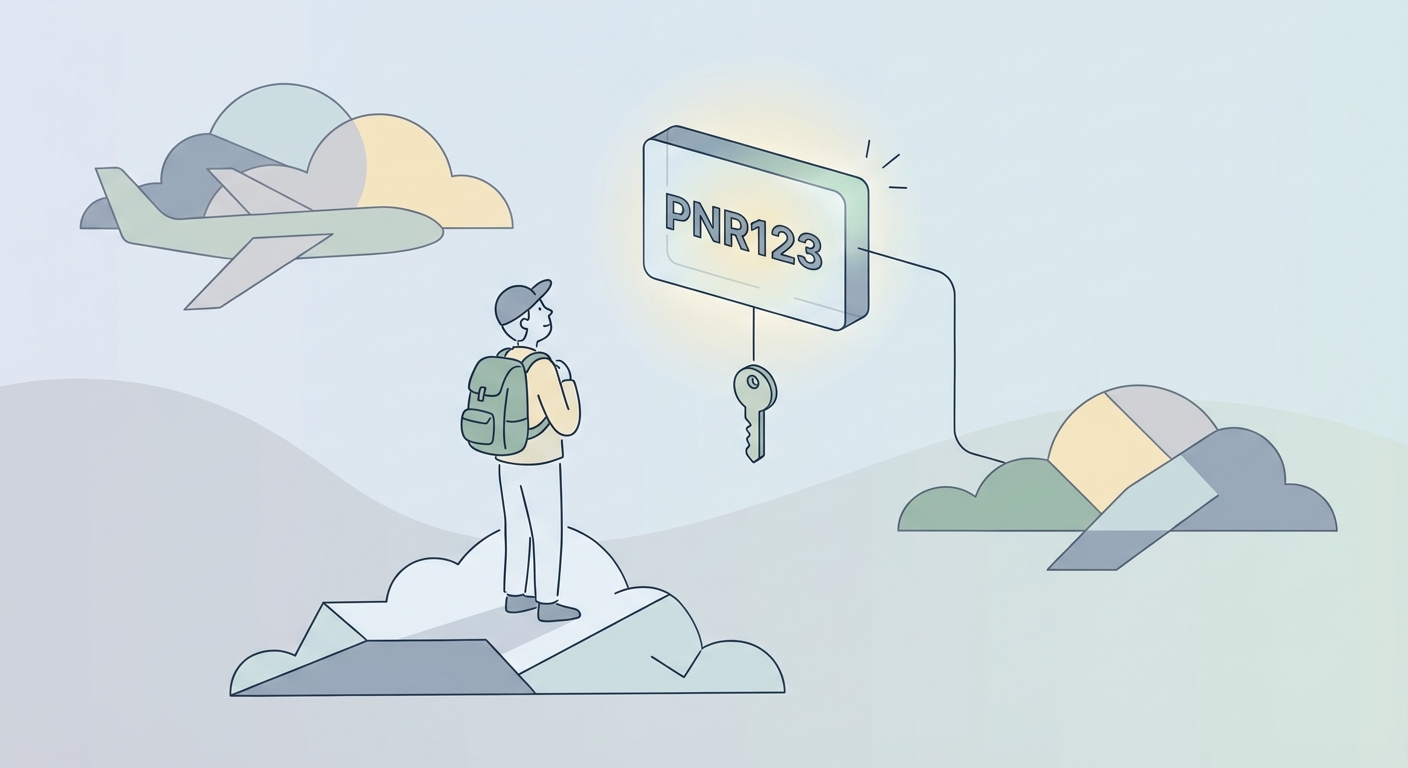Navigating the Shadows: An Ethical Guide to Dark Tourism
Understanding Dark Tourism: More Than Just Macabre Curiosity
Visiting sites associated with death and tragedy might seem unusual, but it's a growing area of tourism. (Dark tourism: when tragedy meets tourism) What exactly is dark tourism, and why are people drawn to these places?
Dark tourism involves travel to sites associated with death, suffering, and tragedy. These sites offer a glimpse into the darker aspects of human history. Examples include:
- Concentration camps like Auschwitz-Birkenau in Poland, where millions were murdered during World War II.
- Battlefields such as Gettysburg in the United States, sites of intense conflict and loss.
- Disaster memorials like the Hiroshima Peace Memorial in Japan, commemorating the victims of the atomic bomb.
- Sites of genocide such as the Kigali Genocide Memorial in Rwanda, honoring the victims of the 1994 genocide.
Motivations for engaging in dark tourism are diverse. People visit these sites out of curiosity, a desire to learn, or a need to remember historical events. Some seek to connect with history, while others want to pay their respects to victims.
It's natural to be curious about death and disaster. We want to understand what happened and why. Visiting dark tourism sites can help us learn about historical events and connect with our own history and identity. These sites also tell stories of hope and solidarity, reminding us of the resilience of the human spirit.
Dark tourism presents both potential benefits and pitfalls. On the one hand, it can provide income for local communities and help preserve historical sites. It also offers an opportunity to tell the stories of victims and educate future generations. However, there are risks. Voyeurism, exploitation of suffering, and disrespect for victims are all concerns. Striking a balance between remembrance and sensationalism is crucial.
Understanding the complex nature of dark tourism is the first step in navigating its ethical considerations, which we will explore in the next section.
Ethical Considerations for the Dark Tourist: A Moral Compass
Is it possible to travel to sites of tragedy with respect and empathy? Dark tourism requires a moral compass to navigate its complex landscape.
This section explores the ethical considerations that should guide dark tourists. We aim to provide a framework for responsible and respectful engagement with sites of suffering and remembrance.
A Framework for Respectful Engagement
At the heart of ethical dark tourism lies respectful remembrance. It is essential to honor the victims and survivors of the tragedies associated with these sites.
- Avoid insensitive behavior. This includes refraining from taking selfies, posing inappropriately, or making disrespectful comments.
- Pay attention to signs and rules at the site. They exist to protect the site and ensure a respectful atmosphere.
- Be mindful of the emotional impact on yourself and others. Dark tourism sites can evoke strong emotions.
Dark tourism can impact local communities positively or negatively. As such, responsible spending is a crucial ethical consideration.
- Choose locally-owned tour operators and businesses. This ensures that tourism revenue benefits the community directly.
- Ensure that tourism revenue benefits the community, not just external entities. Support businesses committed to fair wages and ethical practices.
- Be mindful of the impact on local culture and traditions. Avoid activities that exploit or disrespect local customs.
A significant ethical challenge in dark tourism is the potential exploitation of suffering. It's important to be wary of tours or experiences that sensationalize or exploit tragedy for entertainment.
- Support sites that prioritize education and remembrance over entertainment. Look for those that offer in-depth information and thoughtful reflection.
- Challenge your own motivations and biases. Why are you visiting this site? Are your intentions respectful and educational?
- Be wary of experiences that appear to be geared toward entertainment and fun rather than being educational, or focused on remembrance, as The Travel Psychologist points out, emphasizing that "true engagement comes from understanding and empathy, not from sensationalism."
Consider using Gotriply to plan your dark tourism experiences. Gotriply is your ai assistant that offers:
- Personalized travel itineraries
- Experiences tailored to your preferences
By following these guidelines, dark tourists can transform their journeys into opportunities for learning, remembrance, and positive impact.
The next section explores how to balance education and entertainment in dark tourism.
Navigating Tricky Situations: Ethical Dilemmas in Dark Tourism
Sometimes, the line between respectful engagement and exploitation blurs in dark tourism. How can travelers navigate these tricky situations to ensure their actions honor the victims and communities involved?
Here are some tricky situations travelers might face and how to approach them:
Photography and Selfies
Taking photos at dark tourism sites presents an ethical challenge. It's crucial to consider whether capturing an image is appropriate in a place of suffering.
- Think about the impact of your photos. Avoid centering images on yourself, which can come across as disrespectful. As Lonely Planet advises, "striking an enigmatic pose at memorial sites is a no-go; selfies should focus on the site, not your face."
- Respect restrictions on photography. Some sites prohibit photography altogether to protect the privacy and dignity of victims and survivors.
- If photographing individuals, always seek permission. This is especially important when photographing locals or fellow visitors who may be affected by the site.
Interactions with Local Communities
Interactions with local communities require careful consideration. Your behavior can significantly impact how locals perceive dark tourism and its effects.
- Be mindful of local culture and customs. Researching local traditions beforehand helps to avoid unintentional offense.
- Avoid insensitive questions or comments. Instead, focus on listening to local perspectives and experiences.
- Support local businesses and initiatives. This ensures tourism benefits the community directly. For example, "supporting local guides ensures tourist dollars go straight into Cambodian pockets," as mentioned by Lonely Planet, meaning direct economic benefit to the people most affected.
Souvenir Purchasing
Souvenirs can be a way to remember a visit, but it is essential to consider their origin and purpose. Not all souvenirs are created equal, and some may exploit tragedy for profit.
- Be wary of souvenirs that trivialize or exploit tragedy. Avoid items that seem disrespectful or insensitive to the suffering of others.
- Support local artisans and businesses that offer authentic and respectful souvenirs. Look for items that honor the victims and tell their stories in a meaningful way.
- Consider donating to a relevant charity or organization instead of buying a souvenir. This can be a more impactful way to contribute to the community and honor the victims.
Navigating these ethical dilemmas requires careful consideration and a commitment to respectful, responsible travel. Next, we’ll discuss how to balance education and entertainment in dark tourism.
Case Studies: Examining Ethical Challenges at Specific Dark Tourism Sites
Visiting sites of profound tragedy presents unique ethical challenges. How do we ensure these visits honor the past without exploiting suffering?
Here are some case studies that highlight the ethical dilemmas at specific dark tourism sites:
Auschwitz-Birkenau: Millions perished at this site during World War II. Visitors face the challenge of transitioning from a typical "holiday mode" to a mindset of solemn remembrance. It's crucial to engage in respectful photography and behavior, avoiding poses or actions that could be seen as insensitive. Learning about the history of the Holocaust and supporting educational initiatives helps ensure the site remains a place of respectful learning.
Chernobyl: The site of a devastating nuclear disaster, Chernobyl presents different ethical considerations. Protecting oneself from radiation exposure is paramount, along with respecting the exclusion zone and its current inhabitants. Supporting local guides who offer educational tours helps visitors understand the disaster's impact.
North Korea: Tourism to North Korea sparks intense ethical debate. Visitors are typically on highly controlled, guided tours where information is carefully curated. The ethical dilemma lies in the potential for complicity with a regime that has a poor human rights record. Travelers must weigh whether the limited opportunities for cultural exchange and understanding outweigh the risk of inadvertently supporting the government through their spending and presence. The information provided is often heavily filtered, making it difficult to gain a truly independent perspective, and the tours are designed to showcase a specific narrative.
By carefully considering the ethical implications of these diverse sites, we can ensure our visits contribute to learning and reflection, rather than exploitation.
Practical Tips for Planning an Ethical Dark Tourism Trip
Planning a dark tourism trip involves more than just picking a location; it requires careful consideration to ensure your visit is respectful and meaningful. Thoughtful preparation enhances the experience and minimizes potential harm.
Before embarking on your journey, research the history and context of the site. Understanding the events that occurred, the people affected, and the cultural significance of the location is crucial.
- Learning about the history helps you approach the site with sensitivity and respect.
- Understanding the local culture and customs ensures you avoid unintentional offenses.
- Identifying potential ethical challenges allows you to prepare for difficult situations.
- Planning your itinerary with sensitivity and respect means allocating sufficient time for reflection, avoiding over-scheduling, and choosing activities that align with the solemn nature of the site.
Selecting the right tour operator can significantly impact the ethical dimension of your trip. Look for operators committed to responsible tourism.
- Research the tour operator's values and practices to ensure they align with your ethical standards.
- Look for operators that prioritize education, remembrance, and community support.
- Reading reviews and testimonials from other travelers can provide insights into the operator's ethical conduct.
- Ask questions about the tour's ethical considerations to gauge their commitment to responsible tourism.
What you pack can also reflect your respect for the site and its history. Consider the appropriateness of your attire and belongings.
- Bring appropriate clothing and footwear suitable for the location and the nature of the site.
- Packing light and avoiding unnecessary items reduces your impact on the environment and local resources.
- Leaving behind items that may be considered offensive or disrespectful shows cultural sensitivity.
- Bringing a journal or notebook to record your thoughts and reflections encourages personal engagement with the experience.
Planning an ethical dark tourism trip requires intention and foresight. By researching, choosing ethical operators, and packing thoughtfully, you contribute to a more respectful and meaningful experience.
Next, we'll explore how to ensure your behavior on-site aligns with ethical principles.
The Role of Travel Booking Platforms: Facilitating Ethical Choices
Travel booking platforms play a crucial role in shaping ethical tourism. But how can these platforms steer travelers toward choices that honor the past and support local communities?
Travel booking platforms can be powerful allies in promoting ethical dark tourism. By providing transparent information, curating responsible options, and empowering travelers to make informed decisions, these platforms can facilitate meaningful and respectful journeys.
Travel platforms can offer information about the ethical considerations of visiting certain destinations. This includes details about the site's history, the impact of tourism on local communities, and guidelines for respectful behavior.
- Platforms can highlight tour operators and experiences that prioritize responsible travel. This could involve showcasing operators with certifications or positive community reviews.
- They can also offer resources and guidelines for ethical dark tourism. This might include articles, videos, or checklists that educate travelers on how to engage respectfully with sensitive sites. For instance, customer support might offer a link to a guide on "Respectful Photography at Memorial Sites."
Booking platforms can partner with tour operators that adhere to ethical standards. This involves carefully vetting operators to ensure they prioritize education, remembrance, and community benefit over sensationalism.
- Platforms can offer certifications or labels for responsible travel experiences. For example, a "Community-Focused Heritage Tour" label could indicate that a tour operator works closely with local communities and contributes to preservation efforts.
- They can also promote tours that benefit local communities and support preservation efforts. This could involve highlighting tours that employ local guides or contribute to conservation projects, like a tour of a historical battlefield that partners with a local historical society for its educational components.
Travel booking platforms can provide tools and resources for travelers to research and compare ethical options. This includes detailed information about tour operators, itineraries, and the potential impact of tourism on local communities.
- They can also offer customer support and guidance on ethical travel choices. Trained representatives can answer questions and provide recommendations based on travelers' values.
- Platforms can solicit feedback from travelers on their experiences and use it to improve ethical practices. This crowdsourced information can help identify responsible operators and highlight areas for improvement.
By embracing these strategies, travel booking platforms can transform dark tourism from a potentially exploitative practice into an opportunity for education, remembrance, and positive community impact.
The next section explores how to balance education and entertainment at dark tourism sites.
Beyond the Visit: Continuing the Conversation and Taking Action
Dark tourism can leave a lasting impact, long after the trip concludes. How can we transform a personal experience into a catalyst for broader change?
Sharing your experience is a powerful way to raise awareness about the complexities of dark tourism. Your insights can spark conversations and encourage others to think critically about ethical travel.
- Writing about your experience on platforms like social media or travel blogs allows you to reach a broad audience. For example, a blog post could detail the emotional impact of visiting a genocide memorial and offer specific tips for respectful engagement, using hashtags like #EthicalTravel or #DarkTourismAwareness.
- Sharing your photos and reflections with friends and family can personalize the conversation. Discuss the ethical dilemmas you encountered and how you navigated them, promoting greater understanding.
- Speaking out against unethical practices in dark tourism helps to hold the industry accountable. You could contact tourism boards about exploitative souvenir shops or write to companies that promote disrespectful tours.
Supporting organizations dedicated to preservation and education amplifies the positive impact of your dark tourism experience. Financial contributions and volunteer efforts can make a tangible difference.
- Donating to charities or organizations that support the victims of tragedy provides direct assistance. Your contribution can help fund essential services and promote healing in affected communities. Examples include the Anne Frank House or the International Rescue Committee.
- Volunteering your time or skills to preservation efforts ensures the long-term protection of historical sites. Participate in restoration projects or educational programs that honor the memory of victims. This could involve helping with archival work at a historical museum or assisting with trail maintenance at a battlefield.
- Advocating for responsible tourism policies at the local and national level can drive systemic change. Support initiatives that prioritize ethical conduct and sustainable practices in the tourism industry.
Reflecting on your own values is essential for personal growth and responsible travel. Aligning your actions with your beliefs fosters a deeper understanding of yourself and the world around you.
- Considering how your travel choices align with your personal values helps you make more informed decisions. Evaluate whether your destinations and activities reflect your commitment to ethical and responsible tourism.
- Making a commitment to responsible and ethical travel in all your adventures sets a positive example for others. You could make this commitment visible by actively seeking out and recommending responsible businesses or participating in ethical travel forums.
- Inspiring others to travel with a conscience creates a ripple effect of positive change. Share your knowledge, experiences, and values to encourage more travelers to embrace ethical tourism.
By continuing the conversation and taking action, you can transform dark tourism into a force for education, remembrance, and positive change. Your journey doesn't end when you leave the site; it continues through your actions and advocacy.





